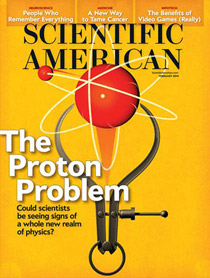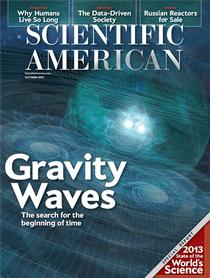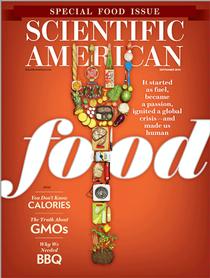Can a scientific utopia succeed?
“There is no scientific law that prevents 100 people who find each other on the Internet from coming together for a month, or 1,000 such people from coming together for a year. And as that increases to 10,000 and 100,000 and beyond, for longer and longer durations, we may begin to see cloud towns, then cloud cities, and ultimately cloud countries materialize out of thin air.” So says Stanford University lecturer Balaji Srinivasan in an article published online by Wired in November 2013. In a talk at the annual conference held by the Silicon Valley start-up-funding organization Y Combinator, he revealed his inspiration to be the classic 1970 book Exit, Voice, and Loyalty by the late economist Albert Hirschman: when firms, nations and other organizations begin to stagnate and decline, members or citizens can employ one of two strategies for change— voice their opinions for reform; exit and start anew. (continue reading…)
read or write comments (9)
Then ideology needs to give way
Ever since college I have been a libertarian—socially liberal and fiscally conservative. I believe in individual liberty and personal responsibility. I also believe in science as the greatest instrument ever devised for understanding the world. So what happens when these two principles are in conflict? My libertarian beliefs have not always served me well. Like most people who hold strong ideological convictions, I find that, too often, my beliefs trump the scientific facts. This is called motivated reasoning, in which our brain reasons our way to supporting what we want to be true. Knowing about the existence of motivated reasoning, however, can help us overcome it when it is at odds with evidence.
Take gun control. I always accepted the libertarian position of minimum regulation in the sale and use of firearms because I placed guns under the beneficial rubric of minimal restrictions on individuals. Then I read the science on guns and homicides, suicides and accidental shootings (summarized in my May column) and realized that the freedom for me to swing my arms ends at your nose. The libertarian belief in the rule of law and a potent police and military to protect our rights won’t work if the citizens of a nation are better armed but have no training and few restraints. Although the data to convince me that we need some gun-control measures were there all along, I had ignored them because they didn’t fit my creed. In several recent debates with economist John R. Lott, Jr., author of More Guns, Less Crime, I saw a reflection of my former self in the cherry picking and data mining of studies to suit ideological convictions. We all do it, and when the science is complicated, the confirmation bias (a type of motivated reasoning) that directs the mind to seek and find confirming facts and ignore disconfirming evidence kicks in. (continue reading…)
read or write comments (43)
Why great scientists make great mistakes
“Alien abductors have asked him to probe them.” “Sasquatch has taken a photograph of him.” The “him” is the “Most Interesting Man in the World,” the faux character in the Dos Equis beer ad campaign, and these are my favorite skeptical lines from a litany of superfluities and braggadocios. (“In a past life, he was himself.”)
My candidate for the most interesting scientist in history I’d like to have a beer with is Alfred Russel Wallace, the 19th-century naturalist and co-discoverer (with Charles Darwin) of natural selection, whose death centennial we will marking this November. As I document in my 2002 biography of him— In Darwin’s Shadow (Oxford University Press)—Wallace was a grand synthesizer of biological data into a few core principles that revolutionized biogeography, zoology and evolutionary theory. He spent four years exploring the Amazon rain forest but lost most of his collections when his ship sank on his way home. His discovery of natural selection came during an eight-year expedition to the Malay Archipelago, where during a malaria-induced fever, it struck him that the best fit organisms are more likely to survive and reproduce.
Being open-minded enough to make great discoveries, however, can often lead scientists to make great blunders. Wallace, for example, was also a firm believer in phrenology, spiritualism and psychic phenomena, evidence for which he collected at séances over the objections of his more skeptical colleagues. Among them was Thomas Henry Huxley, who growled, “Better live a crossing-sweeper than die and be made to talk twaddle by a ‘medium’ hired at a guinea a séance.” (continue reading…)
read or write comments (15)
In this year’s annual Edge.org question “What should we be worried about?” I answered that we should be worried about “ The Is-Ought Fallacy of Science and Morality.” I wrote: “We should be worried that scientists have given up the search for determining right and wrong and which values lead to human flourishing”. Evolutionary biologist and philosopher of science Massimo Pigliucci penned a thoughtful response, which I appreciate given his dual training in science and philosophy, including and especially evolutionary theory, a perspective that I share. But he felt that my scientific approach added nothing new to the philosophy of morality, so let me see if I can restate my argument for a scientific foundation of moral principles with new definitions and examples.
First, morality is derived from the Latin moralitas, or “manner, character, and proper behavior.” Morality has to do with how you act toward others. So I begin with a Principle of Moral Good:
Always act with someone else’s moral good in mind, and never act in a way that it leads to someone else’s moral loss (through force or fraud).
You can, of course, act in a way that has no effect on anyone else, and in this case morality isn’t involved. But given the choice between acting in a way that increases someone else’s moral good or not, it is more moral to do so than not. I added the parenthetical note “through force or fraud” to clarify intent instead of, say, neglect or acting out of ignorance. Morality involves conscious choice, and the choice to act in a manner that increases someone else’s moral good, then, is a moral act, and its opposite is an immoral act. (continue reading…)
Comments Off on Towards a Science of Morality: A Reply to Massimo Pigliucci




